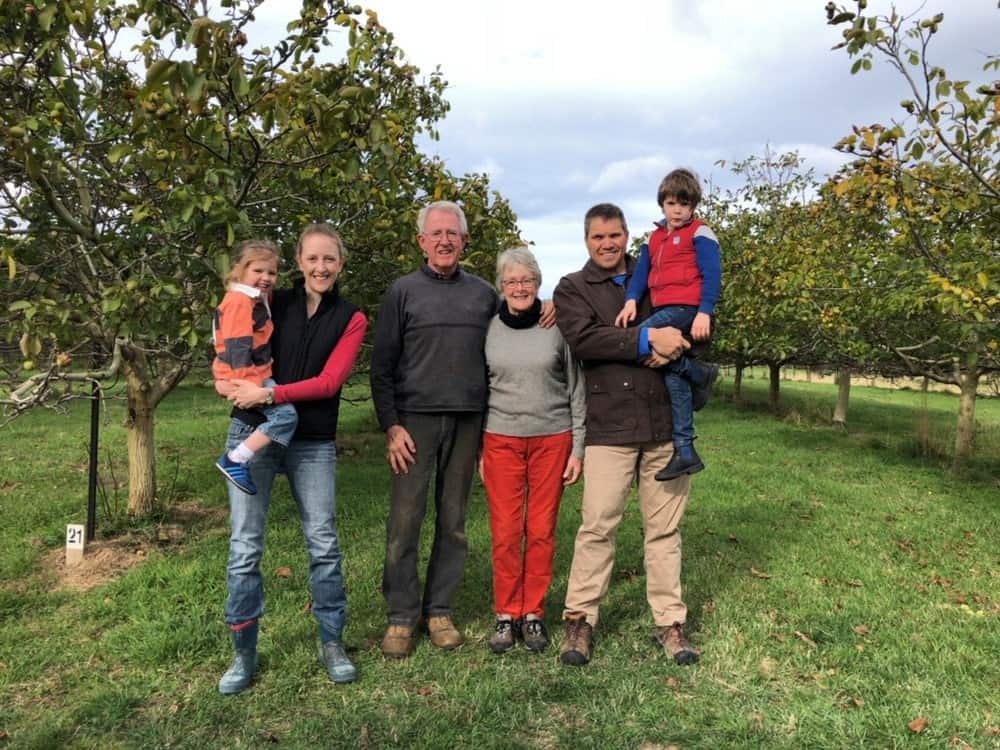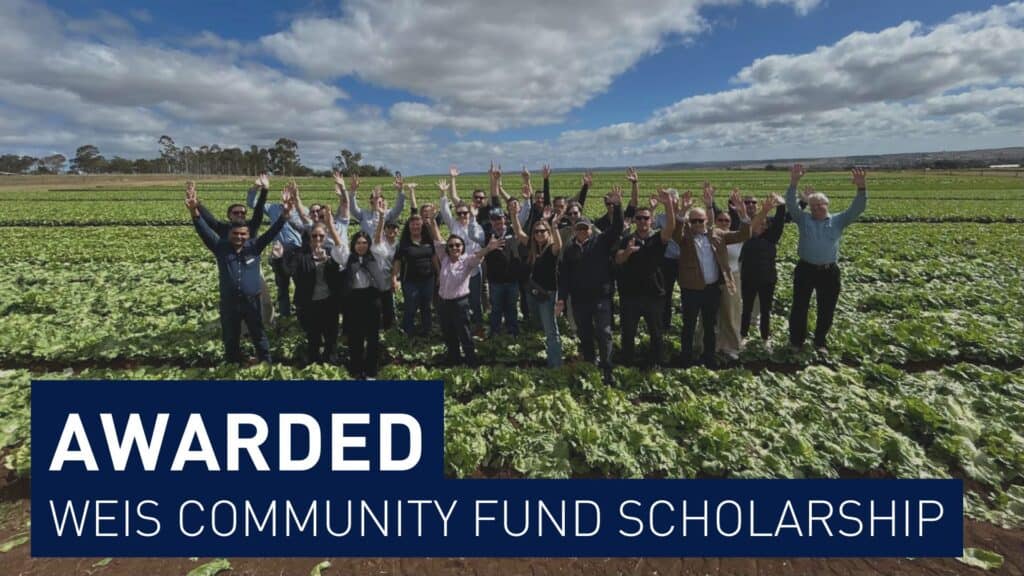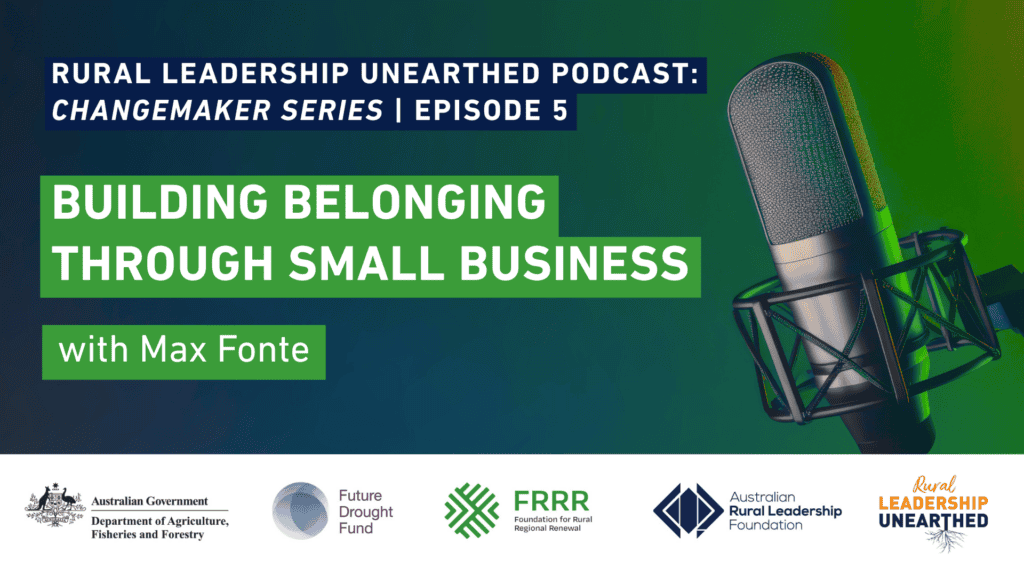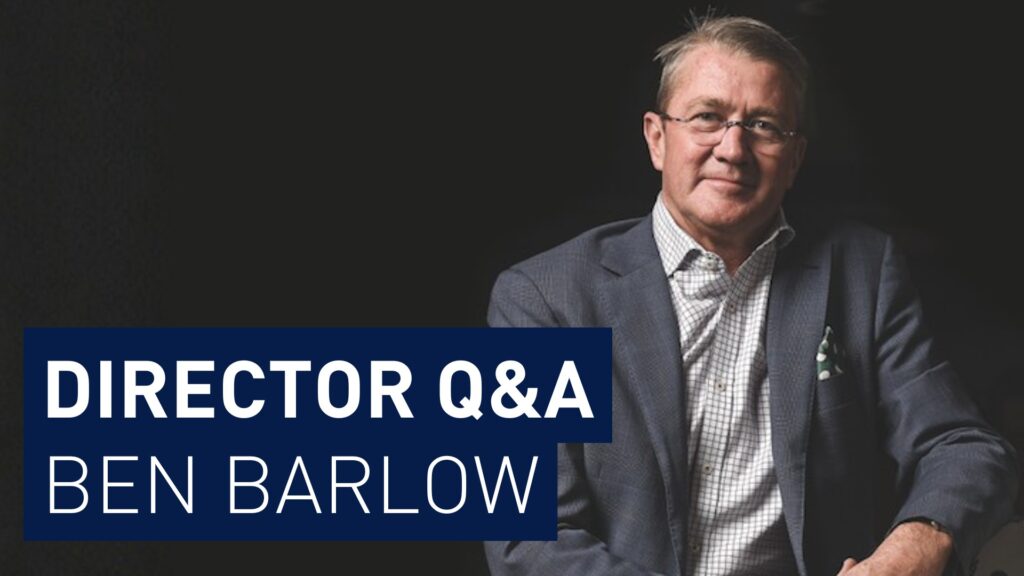Making a ‘tree-change’ was more literal for walnut farmer Sophie Milic than most.
She left her corporate communications career behind six months ago to return to her family’s walnut farm in Tasmania’s Coal Valley.
“We were energised by the prospect of having our own business, of working on the land and of being the masters of our own destiny – but we didn’t go into it being too romantic, we knew we would have to work hard and take on risk when buying a farm,” Sophie said.
Sophie and her husband Brad are now working alongside her parents, having purchased the farm from them and bought into the business – Coaldale Walnuts.
Which is why Sophie has joined the Drought Resilience Leaders Mentoring Program, a Future Drought Fund initiative, as a mentee.
“I want to be able to bring something to the table on the horticulture side of things, to upskill and have a robust understanding of farming, and also have someone to speak to about the contemporary approaches to horticulture that I can start to bring into the business,” she said.
“I don’t know what I don’t know – the ability to spend time with someone who has so much experience in the industry and understand the issues and what I need to be across is so valuable.”
The program will run for six months beginning January 2022, and is designed to give participants the opportunity to develop and expand existing networks and keep pace with the latest innovations in climate response and drought resilience.
Sophie has also recently been elected to the committee of her local farming organisation, the Coal River Products Association, allowing her to share lessons learned in the program with others in her local farming community.
“Drought resilience is about much more than water, it is about good business planning, identifying risks and having a back-up plan for low rainfall; a strong business model to cope with any shock – drought or natural disaster or market failure – any of those things we are faced with in farming,” Sophie added.
“Planning really well is so important, we know drought is going to happen…if you plan well there is a way through, businesses do survive drought.”
Sophie’s mentor, Mary Retallack, agrees that resilience – in business and the environment – requires the building up of “buffering capacity”.
Mary is an agroecologist and viticulturist based in South Australia’s Adelaide Hills, having worked in the wine industry for more than 25 years.
Her company, Retallack Viticulture Pty Ltd, is currently spearheading the EcoVineyard project in partnership with the Wine Grape Council of South Australia, using native plants to create biodiverse ecosystems in and around vineyards.
She finds many parallels between the resilience and nurturing of both people and the environment.
“Diversity is really important whether you are looking at the biodiversity of flora and fauna above ground, microbes in the soil or the mentors you surround yourself with – it helps provide a buffer when you have extreme weather events or unexpected challenges in life,” she said.
“And it provides the skills and capacity to cope with them in a way you and/or the environment can rebound more quickly…challenges then become small interruptions, rather than catastrophic events.”
For Mary, mentoring offers the opportunity to have a real impact on someone achieving their potential, as well as paying forward the information and wisdom others have shared with her.
And she’s looking forward to in turn learning new things from her mentee.
“I have worked in and around agribusiness and horticulture for the past 30 years and am continually learning things all the time – no doubt I will learn a lot from Sophie, and also learn what is important to her,” Mary said.
“Being a different generation, that is a really valuable insight for me, to see what others coming into agriculture really value and how that changes over time.”
With their green walnut (those used for pickling) harvest underway now and continuing over the Christmas period, Sophie won’t be getting much of a holiday season before mentoring begins in January.
But her excitement for the future of her business and the ag industry is keeping her motivated.
“My parents used to sell walnuts as a commodity and now we are marketing under our own label selling our own product and we can’t make enough to fill the market…the industry is moving away from commodities more and more, to really calling out the value of its products, and that is certainly what we are trying to do,” she said.





